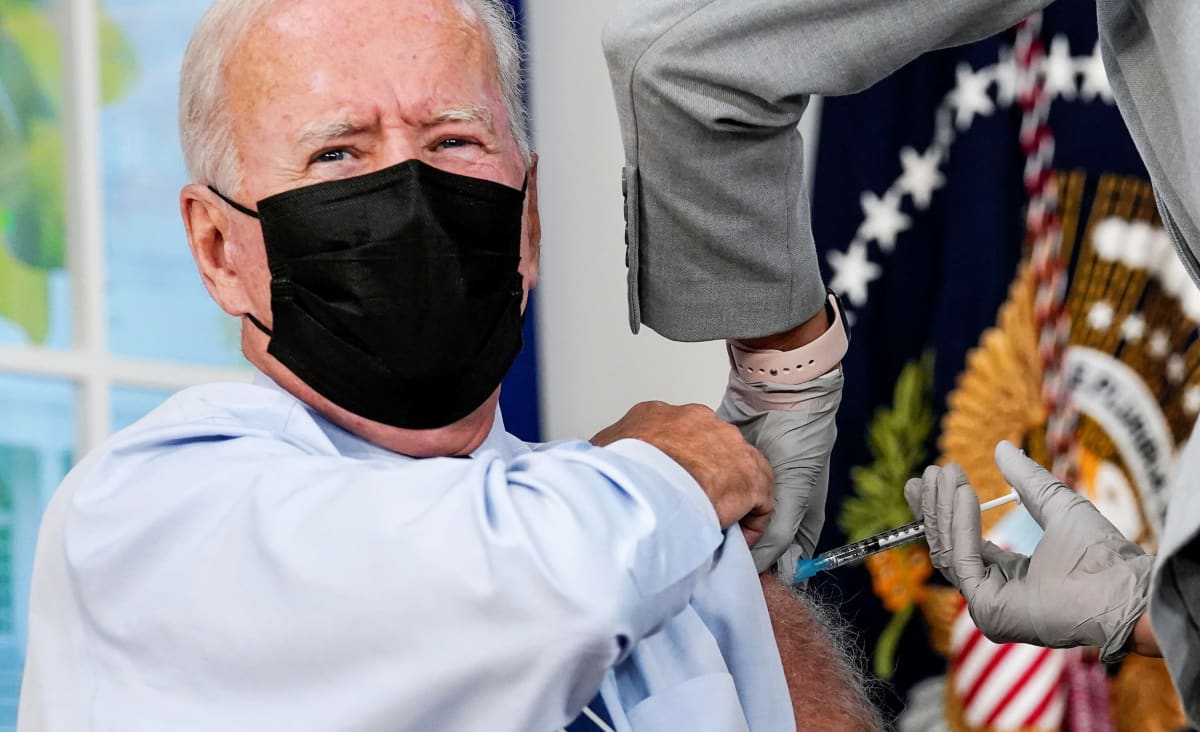This post may refer to COVID-19
To access official information about the coronavirus, access CDC - Centers for Disease Control and Prevention.

www.cnbc.com
Why a Covid booster dose is crucial against the omicron variant
The race is on to get Covid vaccine booster shots. Here's why they're so important in the face of the omicron variant.
Health
As the specter of omicron looms large over the festive season, governments around the world are desperately trying to deploy Covid-19 booster shots in order to bolster people’s protection against the more transmissible variant.
It’s been less than a month since the new, heavily-mutated omicron Covid strain was detected and designated a “variant of concern” by the World Health Organization. Prior to this, studies had shown that the immunity provided by Covid vaccines waned after around six months — meaning that booster shots are essential to increasing protective antibodies to fight potential Covid infection.
The emergence of omicron has made booster shots even more important. This is because a number of early studies — which have been published prior to peer review due to the urgency of the situation — have shown that Covid vaccines are less effective against the omicron variant compared to the globally dominant delta strain and other variants.
But the same studies have indicated that three vaccine doses — the two preliminary shots plus a booster dose — significantly increases the level of protection against omicron.
Here’s a summary of the studies released to date, and what they have found:
Initial findings from South Africa
Last Tuesday, scientists in South Africa, where omicron was first detected, said their small preliminary study into the omicron variant had found that it significantly reduces the antibody protection generated by Pfizer and BioNTech’s vaccine. However, it found that people who had recovered from the virus and received a booster shot would likely have more protection from severe disease.
The scientists concluded that “previous infection, followed by vaccination – or likely a booster – is probably protective against omicron, and almost certainly against severe disease.”
Pfizer-BioNTech’s results
Then, last Wednesday, Pfizer and BioNTech published their own initial lab results testing the omicron variant against their shot, which also showed a significant reduction in the two-dose vaccine’s ability to fight omicron. However, the companies found that a booster dose offered significant protection against the variant and noted that the initial two doses may still protect against severe disease.
U.K.’s Health Security Agency
The U.K.’s Health Security Agency published a report last Friday, citing initial findings from a real-world study, that said a two-dose course of Covid vaccines were significantly less effective against the omicron variant than the delta variant. However, it found that a “moderate to high vaccine effectiveness of 70 to 75% is seen in the early period after a booster dose.”
The booster dose that was assessed was the Pfizer-BioNTech shot, with participants in the study having their first two doses of either the Oxford University-AstraZeneca vaccine or Pfizer-BioNTech’s.
However, the UKHSA cautioned that it will be a few weeks before effectiveness against severe disease with omicron will be known, adding that “the duration of restored protection after mRNA boosting is not known at this juncture.”
Moderna and Pfizer-BioNTech’s shots are mRNA — or messenger RNA — vaccines which teach our cells how to make a protein that will trigger an immune response in our bodies. This response then produces antibodies that help to protect people against Covid infection.
Research from Israel
More research emerged from Israel on Saturday, with researchers also finding that a three-shot course of the Pfizer-BioNTech vaccine provided significant protection against omicron.
The study, carried out by Sheba Medical Center and the Health Ministry’s Central Virology Laboratory, compared the blood of 20 people who had received two vaccine doses five to six months earlier to the same number of individuals who had received a booster one month before.
“People who received the second dose 5 or 6 months ago do not have any neutralization ability against the omicron. While they do have some against the delta [strain],” Gili Regev-Yochay, director of the Infectious Diseases Unit at Sheba, said, according to a Reuters report at the weekend.
“The good news is that with the booster dose it increases about a hundredfold. There is a significant protection of the booster dose. It is lower than the neutralization ability against the delta, about four times lower,” she said.
University of Oxford study
The latest study to bolster our understanding about omicron’s impact on vaccines came from the U.K. on Monday where, again, scientists from the University of Oxford also found that two doses of the Oxford-AstraZeneca or Pfizer-BioNTech Covid-19 vaccines were substantially less effective at warding off omicron compared to previous variants of the virus.
























































